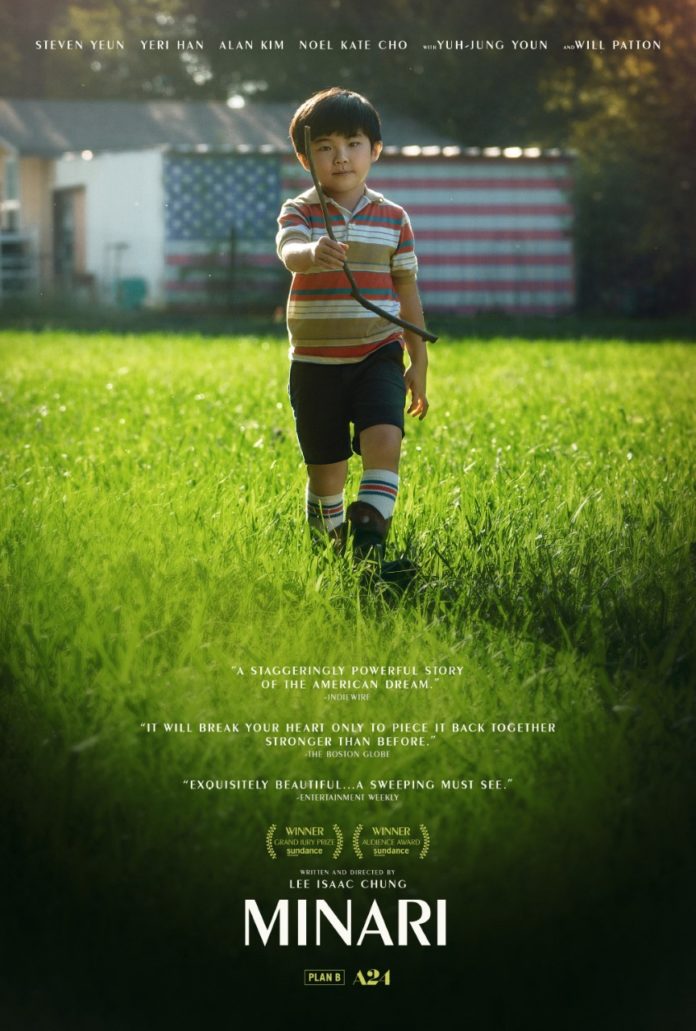Every year it seems as if there is always one film that feels so small and delicate yet actually delivers a big and bold message that can change its audience’s lives. “Minari” offers the very best of what a film can be in a world filled with blockbusters releasing every other week with huge box office returns. Instead, Lee Isaac Chung’s film focuses on a Korean family as they attempt to make it in 1980s’ rural America.
Jacob (The Walking Dead’s Steven Yeun in a career defining role) purchases a large plot of farmland and a deteriorating mobile home in Arkansas with the intent of growing and selling Korean produce. Despite his ambition and pride, the family barely scraps by with little income beside their side job sexing chicks at a local hatchery. Before reaching her breaking point from living in isolation from the rest of the world, Jacob’s wife recruits the help of her mother, Soonja (Youn Yuh-jung in the one of the year’s best performance), who has never met her grandchildren prior to coming to America.
The story is told primarily through the eyes of the family’s youngest child, David (newcomer Alan Kim in his film debut), which helps to showcase the minute details of an immigrant family’s life in America. This is masterfully showcased in the character of Soonja, who introduces the children to many Korean customs they were not aware of as they attempt to live a “typical” American life. Yet that’s the beauty of “Minari”: There is no playbook for the “American Dream”.
And that, in a way, is where the film gets its title which is named after an edible weed primarily found and ate in Korea that dies and grows back stronger during its second season. Soonja brings this plant with her to grow on Jacob’s farm. It’s poetic in the way the audience watches the Yi family struggle to find success in their new lives, hoping to see them find their own “American Dream” eventually in their own second season.
These successes and failures vary between family members, making each character have a unique voice. Each emotion is felt and understood because they are so naturally written by Chung.
His screenplay features various themes, such as family, faith and perseverance, that could independently be their own successful and brilliant films. And even though these various themes are vast in their subject matter, each eventually comes to a fitting climax.
The direction is partnered with some of the most gorgeous cinematography of the year. Full of wide shots that showcase the extensive farmland the family lives on and color that makes every scene pop, blinking during the film feels almost like a crime.
To top it all off, Emile Mosseri’s score provides subtle, yet moving piano ballads, violins and angelic vocals that add to the emotion of each scene. Each track feels almost like it could be played before a church service, welcoming viewers in to be in awe of the message they are about to receive.
It’s no surprise that “Minari” managed to earn six Academy Award nominations, and it would be disappointing to see such a personal, grounded film like it walk away empty handed. In the end, awards don’t matter, but it is a gift to be able to see companies like A24 distributing films like “Minari” to a general audience. A year after the world practically paused, “Minari” allows us to reflect on the simple aspects of life and appreciate all those small moments and details we typically glance over.









